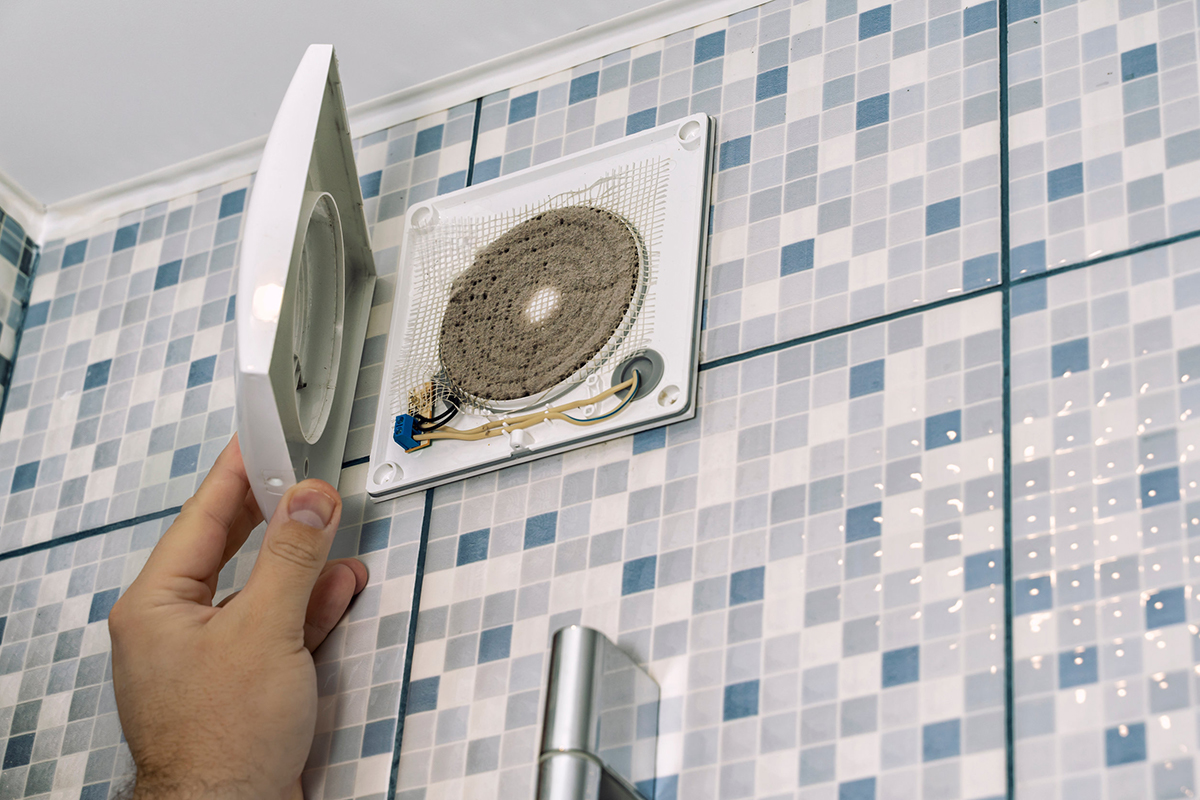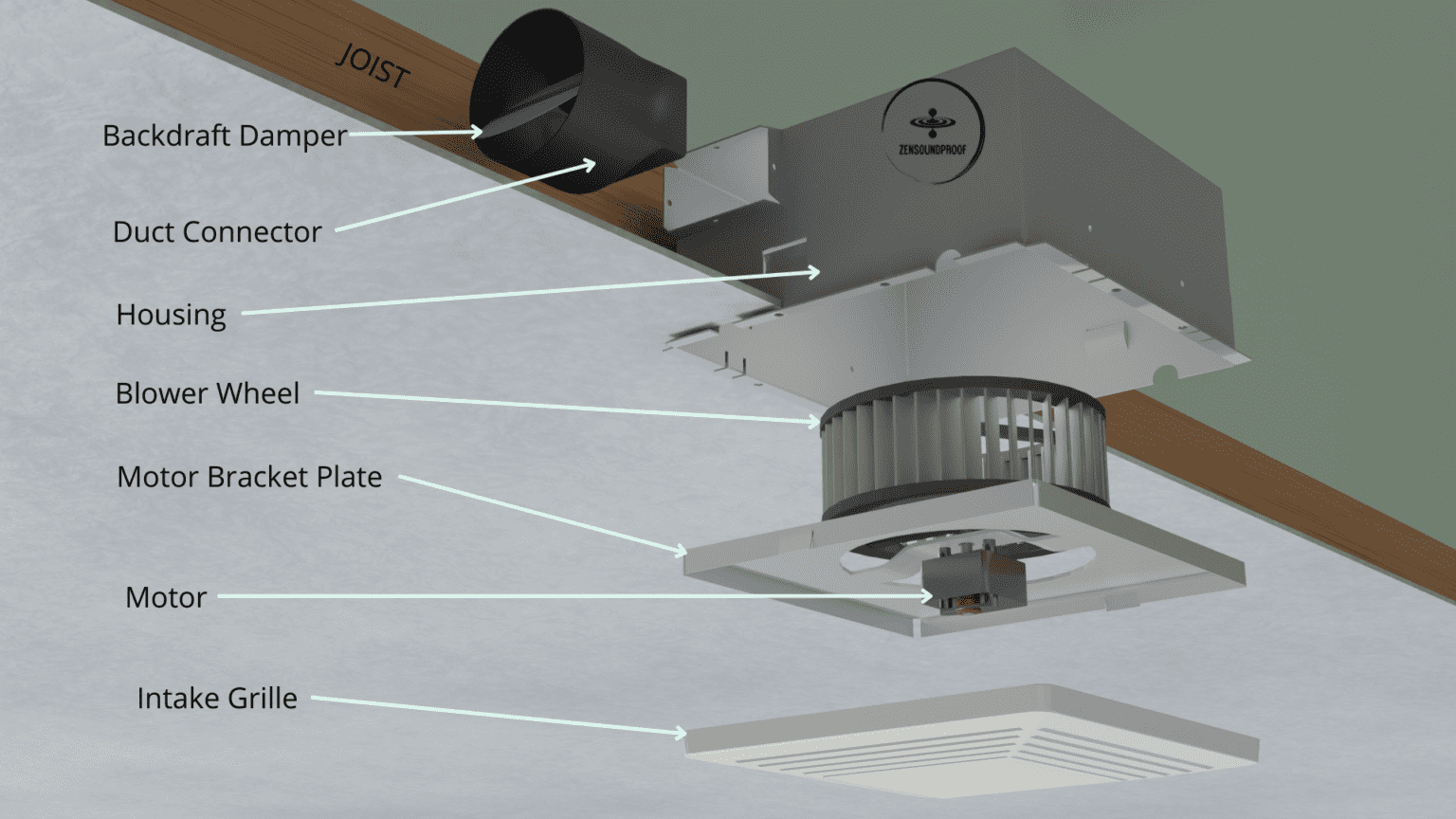Common Causes of Bathroom Fan Noise: Why Is My Bathroom Fan Making Noise

Why is my bathroom fan making noise – Excessive noise from a bathroom fan can be a common annoyance. Understanding the underlying causes of this noise can help you troubleshoot and resolve the issue effectively.
The incessant hum of the bathroom fan, a constant reminder of its existence, echoes through the quiet sanctuary. As the mind wanders in search of an explanation, the thought of transforming this space into a serene oasis emerges. A touch of black home decor , with its timeless elegance, could envelop the room in a sophisticated embrace.
Yet, the lingering question remains: why does my bathroom fan persist in making noise, disrupting the tranquility I seek?
The most common causes of bathroom fan noise include:
- Worn or loose components: Over time, the motor bearings, fan blades, or other components of the fan can become worn or loose, leading to increased noise levels.
- Improper installation: If the fan is not properly installed, it may not be securely attached to the ceiling or wall, causing it to vibrate and produce noise.
- Lack of lubrication: The motor bearings may require periodic lubrication to reduce friction and noise.
- Obstructed airflow: A blocked or dirty fan grille or ductwork can restrict airflow, causing the fan to work harder and produce more noise.
- Electrical issues: Loose wiring or a faulty motor can also contribute to excessive fan noise.
Worn or Loose Components
As the fan operates, the motor bearings can gradually wear out, leading to increased friction and noise. Loose fan blades or other components can also create a rattling sound when the fan is running.
Troubleshooting and Repair Options

To effectively address bathroom fan noise, a comprehensive troubleshooting and repair approach is essential. Begin by identifying the root cause of the disturbance, then implement appropriate measures to rectify the issue.
Thoroughly inspect the fan components, including the motor, blades, and housing, for any signs of damage or wear. Clean the fan thoroughly to remove accumulated dust and debris, which can impede its smooth operation.
Lubricating Moving Parts, Why is my bathroom fan making noise
Insufficient lubrication can lead to excessive noise and premature component failure. Apply a few drops of light machine oil to the motor bearings and other moving parts, taking care not to over-lubricate.
Tightening Loose Components
Loose components, such as the fan blades or housing, can generate rattling or buzzing sounds. Securely tighten all screws and bolts to ensure a snug fit and eliminate any play or vibration.
Replacement Considerations

Replacing your bathroom fan may be necessary if repair attempts prove unsuccessful or if the fan is outdated or inefficient. When selecting a new fan, consider the following factors:
- Size: Ensure the new fan is compatible with the existing ductwork and ceiling opening.
- Airflow Capacity: Choose a fan with sufficient airflow capacity (measured in cubic feet per minute or CFM) to effectively ventilate the bathroom.
- Noise Level: Opt for a fan with a low noise level (measured in sones) to minimize disturbance.
Types of Bathroom Fans
Various types of bathroom fans are available, each with unique features and considerations:
| Type | Features | Benefits | Drawbacks |
|---|---|---|---|
| Ceiling-Mounted Fan | Installed in the ceiling, directly connected to ductwork | Unobtrusive, efficient ventilation | May require professional installation |
| Wall-Mounted Fan | Mounted on the wall, often above the shower or toilet | Easy installation, suitable for smaller bathrooms | Less powerful than ceiling-mounted fans |
| Exhaust Fan | Directly vents air outside through a duct | Effective ventilation, reduces humidity | Requires proper ductwork and may be noisy |
| Energy-Efficient Fan | Equipped with energy-saving features, such as a timer or humidity sensor | Reduces energy consumption, improves air quality | May be more expensive than standard fans |
The persistent whirring of my bathroom fan disrupts the tranquil silence, reminding me of the forgotten maintenance it requires. As I ponder over the reasons behind its noisy performance, my mind wanders to the heartwarming sight of family wall decor adorning the walls of my home, capturing precious moments of laughter and love.
Returning to the matter at hand, I resolve to investigate the fan’s malfunction, determined to restore its harmonious operation.